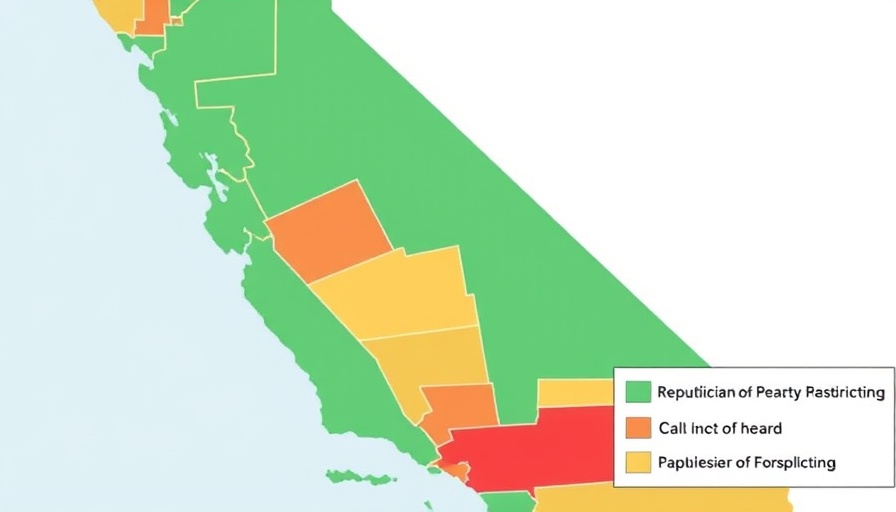
California Republicans File Lawsuit Against Redistricting Plans
In a significant political move, California Republicans have taken legal action against the state's proposed redistricting plans, filing a lawsuit in the state Supreme Court to halt the ongoing process. This announcement came as hearings began in the state Senate and Assembly regarding Governor Gavin Newsom's redistricting initiative, which aims to counteract Texas' efforts to secure more Republican congressional seats.
Concerns Over Transparency and Process
The lawsuit centers around claims that the redistricting plan violates constitutional norms by not allowing sufficient public review time. According to the complaint, California voters deserve a transparent and participatory process, ideally overseen by an independent citizens redistricting commission, rather than a quick legislative vote on maps created behind closed doors.
Response to National Trends
This move by California Republicans reflects a broader war of political strategy in response to nationwide redistricting battles led by states like Texas, where partisan lines are sharply drawn. President Trump has been vocally supportive of Texas' new redistricting tactics, urging state leaders to favor Republican interests in congressional seat allocations.
Bipartisan Calls for Ethical Redistricting
Voices from both sides of the aisle, such as Republican Assemblyman Carl DeMaio, argue against congressional redistricting becoming a mere tool for political gain. They emphasize the importance of preserving the democratic process that California voters affirmed in 2010, supporting a more open and civil approach to redistricting.
Future Implications of the Lawsuit
As the legal proceedings advance, the implications for California's political landscape could be profound. Should the court rule in favor of the Republicans, it may not only impact the state's congressional map but also set a precedent for redistricting practices nationwide. Meanwhile, California politicians are vowing to resist any attempts to undermine the voices of their constituents, ensuring that public input remains integral to the decision-making process.
 Add Row
Add Row  Add
Add 



Write A Comment